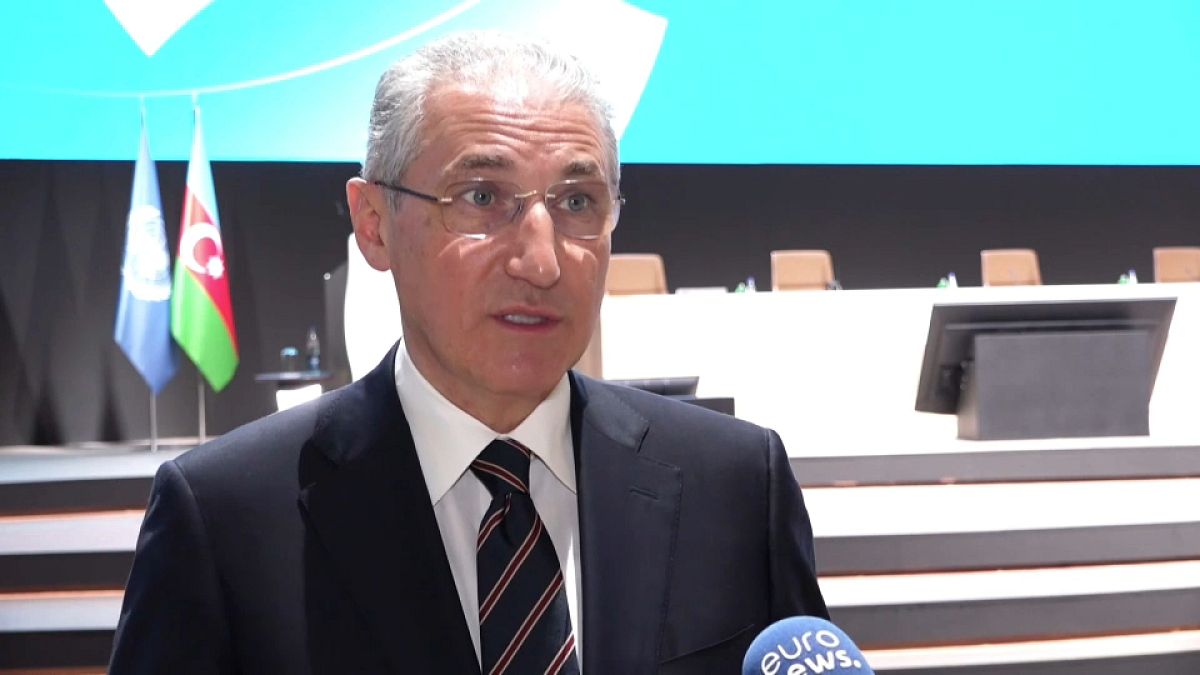The fifth day of COP29 saw a high-level panel discussing climate and peace, but the focus has shifted to calls for reforming the COP process. In an open letter signed by global leaders and climate experts, key reforms were proposed to improve the effectiveness of the COP process. The reforms include better tracking of climate financing, integrating the latest scientific evidence, holding smaller and more frequent meetings, and implementing strict eligibility criteria for host nations. COP29 President-Designate Mukhtar Babayes shared his optimism about the progress made so far, particularly on the new collective quantified goal (NCQG) for climate finance set to replace the $100 billion target by 2025. Despite positive signals from international financial institutions, Babayes acknowledged that the process was complicated, and discussions were ongoing to navigate towards a successful conclusion in Baku.
The letter signed by global leaders and renowned climate scientists highlights the need for reforming the COP process to enhance its effectiveness in addressing climate change. The proposed reforms aim to ensure better tracking of climate financing, integration of the latest scientific evidence, holding smaller and more frequent meetings, and implementing strict eligibility criteria for host nations. COP29 President-Designate Mukhtar Babayes expressed his satisfaction with the progress made at the conference so far, particularly on the new collective quantified goal for climate finance to replace the previous $100 billion target set in 2009. While there have been positive signals from international financial institutions to increase their contributions, Babayes acknowledged that the process was complex and discussions were ongoing to navigate towards a successful outcome in Baku.
The COP29 conference in Baku has seen a shift in focus towards calls for reforming the COP process to enhance its effectiveness in addressing climate change. An open letter signed by global leaders and climate experts outlined key reforms needed, including better tracking of climate financing, integration of the latest scientific evidence, smaller and more frequent meetings, and strict eligibility criteria for host nations. COP29 President-Designate Mukhtar Babayes expressed optimism about the progress made at the conference, particularly on the new collective quantified goal for climate finance to replace the $100 billion target set in 2009. While there have been positive signals from international financial institutions to increase their contributions, Babayes acknowledged the complexity of the process and ongoing discussions to navigate towards a successful outcome in Baku.
As the first week of COP29 draws to a close, the focus has shifted towards reforming the COP process to enhance its effectiveness in addressing climate change. An open letter signed by global leaders and climate experts called for key reforms such as better tracking of climate financing, integration of the latest scientific evidence, smaller and more frequent meetings, and strict eligibility criteria for host nations. COP29 President-Designate Mukhtar Babayes expressed his optimism about the progress made at the conference, particularly on the new collective quantified goal for climate finance to replace the $100 billion target set in 2009. While there have been positive signals from international financial institutions to increase their contributions, Babayes acknowledged the complexity of the process and ongoing discussions to navigate towards a successful outcome in Baku.
The focus at COP29 has shifted towards calls for reforming the COP process to enhance its effectiveness in addressing climate change. An open letter signed by global leaders and climate experts outlined key reforms needed, including better tracking of climate financing, integration of the latest scientific evidence, smaller and more frequent meetings, and strict eligibility criteria for host nations. COP29 President-Designate Mukhtar Babayes expressed his optimism about the progress made at the conference, particularly on the new collective quantified goal for climate finance to replace the $100 billion target set in 2009. While there have been positive signals from international financial institutions to increase their contributions, Babayes acknowledged the complexity of the process and ongoing discussions to navigate towards a successful outcome in Baku.
Looking ahead, all eyes are on what will transpire in the coming days at COP29. The next week will be crucial in determining the level of commitment from all parties involved in meeting the Paris Agreement’s goals. The progress made on the new collective quantified goal for climate finance is a positive sign, but the complexity of the process has posed challenges. COP29 President-Designate Mukhtar Babayes remains hopeful that discussions will lead to a successful conclusion in Baku. As the conference continues, it remains to be seen how much will be achieved and the level of commitment from all parties towards addressing climate change.











